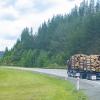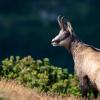Building on the research previously undertaken in the Ecosystems Services and Management and Water programs, the BNR Program fully exploits the potential for biodiversity research within integrated system analysis.
The program brings together different elements of land and aquatic ecosystems including agriculture, forests, and fisheries with water and the marine environment to inform global and regional policy assessments and provide robust science-based knowledge and foresight. The program aims to establish IIASA as an international community hub for biosphere research through innovative tool development; to lead the integration of biophysical-economic modeling with governance; to engage with stakeholders; and to facilitate community driven efforts. It provides policymaking support through core program and group research undertaken in the four BNR research groups.
BNR further engages in bilateral collaborations with other research programs and groups at the institute on key cross-cutting themes such as climate change adaptation and mitigation, the green economy, resilient food systems, transboundary governance, resource depletion and migration, and digital transformation.
Projects
Staff
News
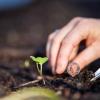
14 May 2024
Study confirms giant store of global soil carbon and highlights its dynamic nature
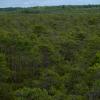
07 May 2024
TaigaClimate Project Meeting 2024
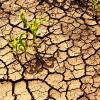
25 April 2024
Climate change could become the main driver of biodiversity decline by mid-century
Events
Gvishiani Room, IIASA, Laxenburg, Austria
Korea University-IIASA symposium: Towards integrated approaches for modeling ecosystem material cycles and climate crisis-related disturbances
Focus
09 April 2024
Forest science and education in Ukraine: Priorities for action

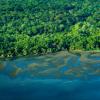
07 February 2024
Rainforest gets digital twin
One of the most species-rich rainforests in southern Costa Rica is being digitally recreated. IIASA researcher Florian Hofhansl explains how the project intends to map the biodiversity and health status of the rainforest and attract sponsors.
Publications
Kim, J., Jo, H.-W., Kim, W., Jeong, Y., Park, E., Lee, S., Kim, M., & Lee, W.-K. (2024). Application of the domain adaptation method using a phenological classification framework for the land-cover classification of North Korea. Ecological Informatics 81 e102576. 10.1016/j.ecoinf.2024.102576. Grünig, M., Rammer, W., Albrich, K., André, F., Derci Augustynczik, A.L., Bohn, F., Bouwman, M., Bugmann, H., Collalti, A., Cristal, I., Dalmonech, D., De Caceres, M., De Coligny, F., Dobor, L., Dollinger, C., Forrester, D.I., Garcia-Gonzalo, J., González, J.R., Hiltner, U., Hlásny, T., Honkaniemi, J., Huber, N., Jonard, M., Maria Jönsson, A., Lagergren, F., Nieberg, M., Mina, M., Mohren, F., Moos, C., Morin, X., Muys, B., Peltoniemi, M., Reyer, C., Storms, I., Thom, D., Toïgo, M., & Seidl, R. (2024). A harmonized database of European forest simulations under climate change. Data in Brief 54 e110384. 10.1016/j.dib.2024.110384. Minetto Gellert Paris, J., Escobar Lanzuela, N. , Falkenberg, T., Gupta, S., Heinzel, C., Verly Junior, E., Jolliet, O., Borgemeister, C., & Nöthlings, U. (2024). Optimised diets for achieving One Health: A pilot study in the Rhine-Ruhr Metropolis in Germany. Environmental Impact Assessment Review 106 e107529. 10.1016/j.eiar.2024.107529. Nowosad, J. & Hesselbarth, M. (2024). The landscapemetrics and motif packages for measuring landscape patterns and processes. arXiv 10.48550/arXiv.2405.06559. (Submitted) Tiwari, S. & Singh, J.G. (2024). A cooperation based transactive energy management for networked energy hubs considering improved payoff allocation mechanism. Sustainable Energy Technologies and Assessments 65 e103777. 10.1016/j.seta.2024.103777. Tiwari, S., Singh, J.G., & Garg, A. (2024). A static robust energy management approach for modelling low emission multi-vectored energy hub including emission markets and power-to-gas units. Energy 294 e130827. 10.1016/j.energy.2024.130827.

